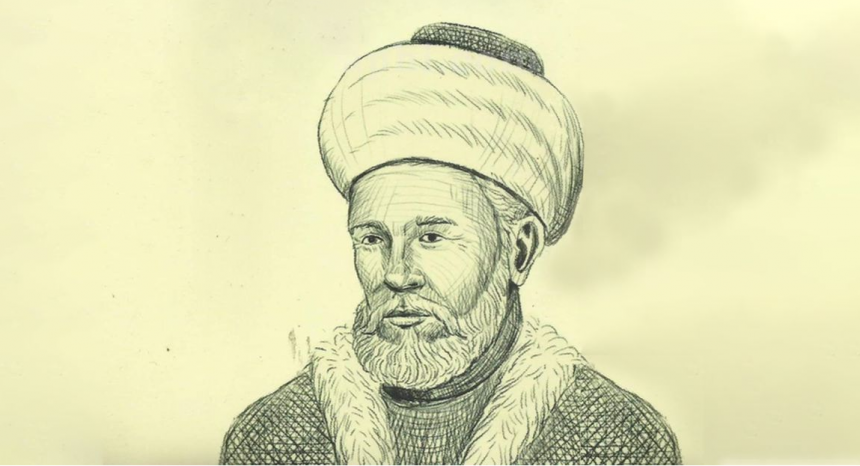In the annals of Islamic philosophy, few figures stand as prominently as Abu Nasr al-Farabi, known in West as Alpharabius. Born in about 870 in the village of Farab Turkestan. Al Farabi’s contribution to philosophy remains profoundly influential. He is often regarded as the “Second Teacher” after Aristotle, al-Farabi envisioned politics not merely as a practical art but as a central pillar of philosophical inquiry.
Living in the 10th century, a vibrant period of intellectual exchange within the Islamicate civilization, al-Farabi crafted a political doctrine that intertwined metaphysics, epistemology, and ethics. His three seminal works—’The Perfect City-State’, ‘Political Aphorisms’, and ‘Political Regime’—written or completed after his departure from Baghdad to Damascus in 942 CE, form a cohesive intellectual project. These texts were not just theoretical treatises but performative acts aimed at laying the groundwork for an ideal society. His vision of ideal state was the State of Madina (Riyasa’t-e- Madina) governed by Muhammad (SAW) as its head, as he was in direct communion with Allah (SWT) whose law was revealed to him.
Al-Farabi, profoundly inspired by the works of Aristotle and Plato, endeavours to forge a political philosophy that integrates the Aristotelian framework with the Islamic milieu. His synthesis yields a refined perspective on the function of religion within society.
Philosophical Soteriology and the Role of Religion
Al Farabi’s soteriological outlook—his conviction that philosophy serves as a conduit to human redemption— fundamentally shapes his conceptualization of the state. For al-Farabi, politics is the culmination of philosophical study, a discipline that presupposes mastery of logic, physics, and metaphysics. Only through this rigorous curriculum can one grasp the purpose of human existence and the essence of human nature. Without such understanding, political theories risk being blind to humanity’s true potential, leading to societal collapse and absurdity. Al-Farabi rejected deterministic religious doctrines that deny free will or portray God as the source of both good and evil, arguing that such beliefs undermine human agency and lead to ruin.
According to al-Farabi, being human is not an inherent or inalienable gift granted at birth. Rather, we must strive to become truly human, which entails reaching a state of complete perfection. In his view, humanity’s ultimate purpose lies in the attainment of this perfection—a condition not endowed by nature but achieved through the cultivation of intellectual and moral character.
Drawing from Neoplatonic traditions, he posited that humans are both material (tied to the physical world) and potentially immaterial (capable of transcending it through thought). To become truly human is to actualize this potential, a process that nature inclines us toward but does not guarantee. Failure to do so results in the soul’s annihilation alongside the body, while success leads to immortality as a self-subsisting entity.
Philosophy, for al-Farabi, is the vehicle for this transformation. It equips individuals with demonstrative truth, enabling them to align their actions with their rational nature.A true religion, crafted by a philosopher, encapsulates demonstrative knowledge in endoxic (commonly accepted) opinions, guiding believers toward rational perfection within their capacity. Theology, then, becomes an imitative yet rational extension of philosophy, ensuring that even the simplest believer can partake in the pursuit of happiness.
The Perfect City-State: A Soteriological Project
Al-Farabi’s political vision crystallizes in his concept of the perfect city-state, a community designed to actualize human potential universally. Politics, in this framework, is inherently soteriological—its purpose is to create the conditions for all citizens to receive the philosophical or religious teaching necessary for their salvation. ”The perfect City-State imagined by Farabi is like a school where philosophers, as rulers, educate both the naturally inclined and the masses, using pedagogy, incentives, and, if necessary, compulsion.”
Al-Farabi’s vision of al-Madinah al-Fadilah (The Virtuous City) where he theorized an ideal state, supposedly modelled on Plato’s ‘The Republic’ stands as one of the earliest comprehensive theories of the state in Islamic thought. Building on earlier thinkers like Ibn al-Muqaffa and Al-Kindi, Al-Farabi argued that states emerge from the collective will of citizens to meet mutual needs and posits that authentic governance, rooted in profound philosophical principles, emanates from the highest form of theoretical virtue: happiness. This happiness is inherently collective, meant to be universally accessible. Only those who have attained it can impart it to others.
A philosopher achieves true excellence by embodying contemplative wisdom and fostering this same excellence within the political sphere. Happiness, in this framework, represents the ultimate common good—its essence remains undiminished even when shared. Each citizen, according to their innate capacity (*fitra*), should have the opportunity to participate in this ideal. Consequently, justice in al-Farabi’s ideal city-state operates on dual principles: it is both equitable in distribution and structured hierarchically to reflect natural aptitudes.
Farabi’s Typology of States
In his writings ‘Kitab Ara-Ahl al-Madinah al-Fadilah & Siyasat al-Madniyah’, Farabi outlines seven types of states, presenting a framework for understanding governance, law, and human motivation. These categories range from the lowest forms of society that is Madīnat al-Ḋarūrīyah (State of Necessity) to Al-Dalālah Madīnat (State of Error), driven by basic needs to the ideal virtuous state led by wisdom and justice.
Caliph or Ruler
Farabi argues that some individuals are naturally better at interpreting events and guiding others, making them ideal leaders. The optimal ruler (or group of rulers, if no single person meets all criteria) should possess traits like intelligence, strong memory, eloquence, moral integrity, love for justice, and physical soundness.
While such a leader is theoretically ideal, finding one in reality is difficult. Farabi’s concept aligns with the Islamic Caliphate model, emphasizing virtuous governance. The Quran supports this idea through the example of King Saul (Talut), portraying a just and capable ruler as essential for good governance and human rights. This blends ancient and modern ideals of leadership.
Conclusion
By establishing the state and transferring certain individual rights to a supreme authority, Al-Farabi’s concept of the social compact (the Umrani covenant) lays the foundation for a republican and democratic society. He envisioned a stable society built on mutual cooperation aimed at achieving collective happiness. This principle later influenced Western political thinkers like Locke and Rousseau, who recognized the importance of such a social contract. Hobbes, too, saw the pact as rooted in mutual defence and the management of distrust among people.
Al-Farabi’s ideas deeply impacted later philosophers who built their theories upon his work. In his view, the ideal state does more than meet basic needs—it upholds the values of the Madinah al-Fadhila (The Virtuous City). As the embodiment of these ideals, Madinah represents the model state, whose success ushered in a golden age in global history.
(Author can be mailed at: [email protected])








